Organic Off-Page SEO: Guide to Off Site Optimization
Nov 14, 2024
Written by Casey Bjorkdahl

Casey Bjorkdahl is one of the pioneering thought leaders in the SEO community. In 2010, Casey co-founded Vazoola after working for a Digital Marketing Agency for five years in New York City. Vazoola is now one of the fastest growing and most widely recognized SEO marketing firms in the country.
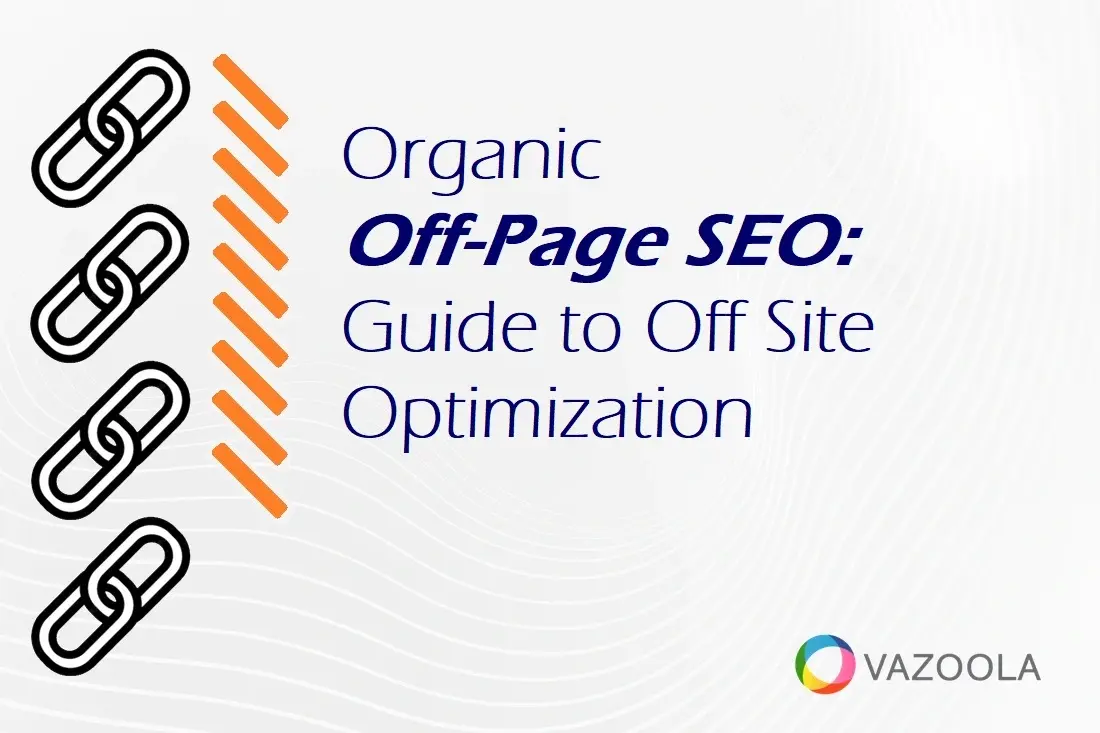
SEO is all about optimizing elements on your own website, right?
Wrong!
While a good deal of SEO pertains to on-page factors, it’s also important to optimize elements outside of your website.
Off-page SEO concentrates on the authority, visibility, and credibility of your brand online.
But what is off-page SEO, really?
While on-page SEO deals with the on-page optimization of the content of your website, off-page SEO manages other activities that are outside of your website’s direct reach. It drives more traffic to your website, enhances your ranking among search engines, and grows your online visibility.
In fact, off-page search engine optimization gives marketing managers, content creators, and business owners a way to differentiate between reaching their target audience or simply getting lost in the crowd.
For our off-page SEO checklist, we’ve deep-dived into the off-page SEO types that are effective. We’ve also provided some advanced tips and actionable techniques that will help take your brand beyond your web pages. Think of it as a comprehensive list of off-page activities for SEO.
Whether you improve backlinks, improve ranking, or grow new audiences, these are some sure-fire off-page SEO strategies that will make a coveted dent in a highly competitive digital space.
Key Takeaways: What Our Guide to SEO Off-Page Covers
-
Understand off-page SEO fundamentals and why they matter.
-
Discover proven off-page SEO techniques and practical applications.
-
Learn effective ways to elevate your brand’s authority and visibility in search engines.
-
Find out how to leverage unlinked brand mentions, social media, and user-generated content to expand your reach.
-
Explore outreach strategies that help you connect with influencers and industry leaders for powerful SEO gains.
Table of Contents
What Off-Page SEO Means
What is SEO off-page, anyway? Do you know the off-page SEO definition? Likewise, what’s the difference between on-page SEO and off-page SEO?
Off-page SEO, also known as off-site SEO, occurs when you optimize factors outside your website that influence its rankings. Rather than focusing on content or keywords within your site, off-page SEO strategies target elements like social engagement, off-page backlinks, and brand mentions.
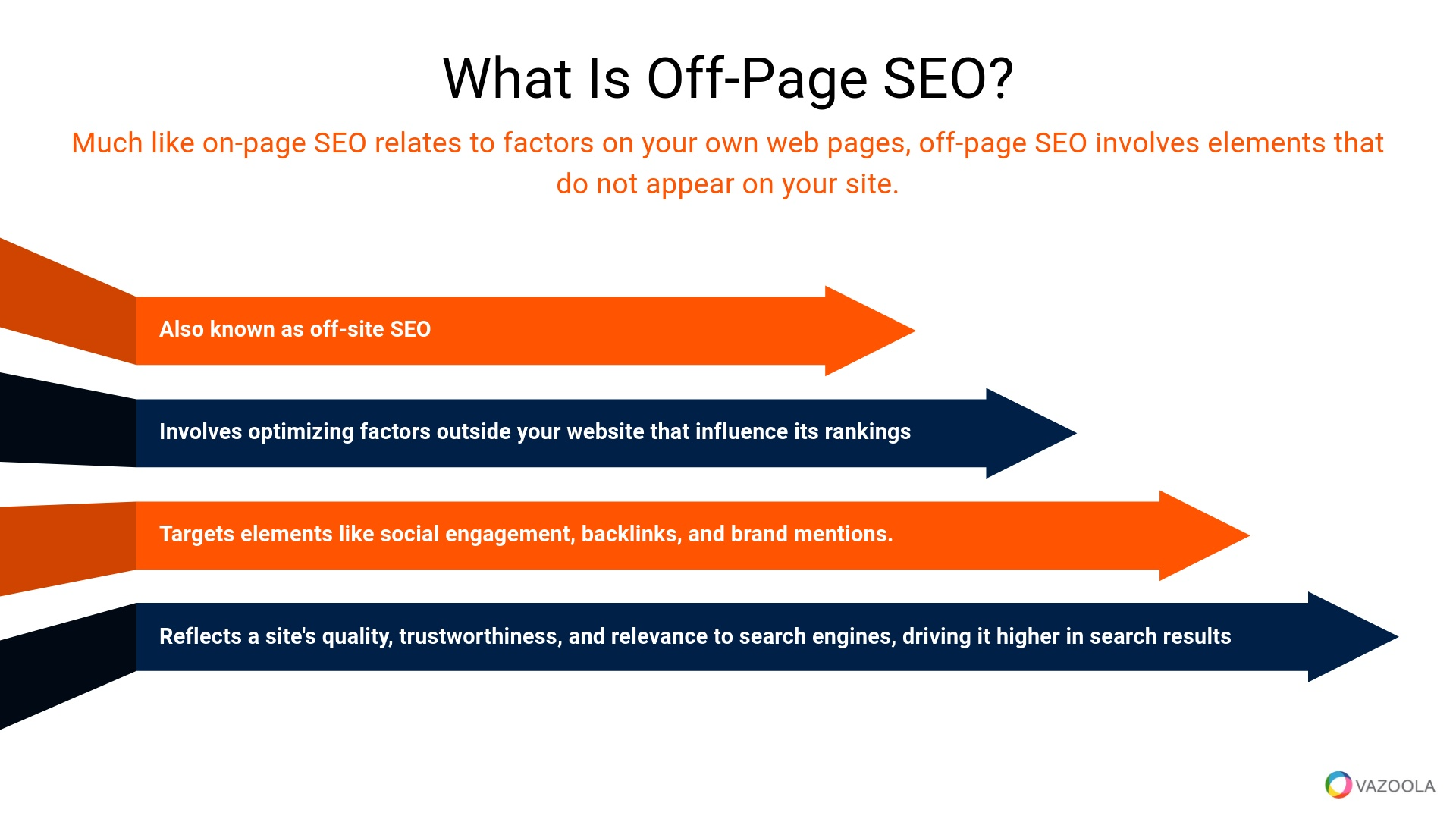
Successful off-page SEO validates your site’s quality, trustworthiness, and relevance to search engines, driving it higher in search results.
Search engines rely on off-page indicators to judge the value of your site. These include the quality and quantity of backlinks, social signals, and online mentions. Effective off-page SEO strategies increase your domain authority, improve user engagement, and ultimately boost your site’s ranking.
Of course, boosting content on social media doesn’t alone spell off-page SEO success. More than brand mentions, you want to publish shareable content to spread your brand’s message and drive conversions.
A successful off-page SEO program helps build your online reputation both with the public and with Google’s search bots and its quality raters, internet users who evaluate websites based on the search giant’s Quality Rater Guidelines.
Off-Page Ranking Factors
Understanding off-page ranking factors can help you refine your off-page SEO plan, focusing on elements that search engines prioritize when determining a site’s authority and relevance. Below are some of the most impactful off-page factors in SEO that influence search rankings and establish online credibility.
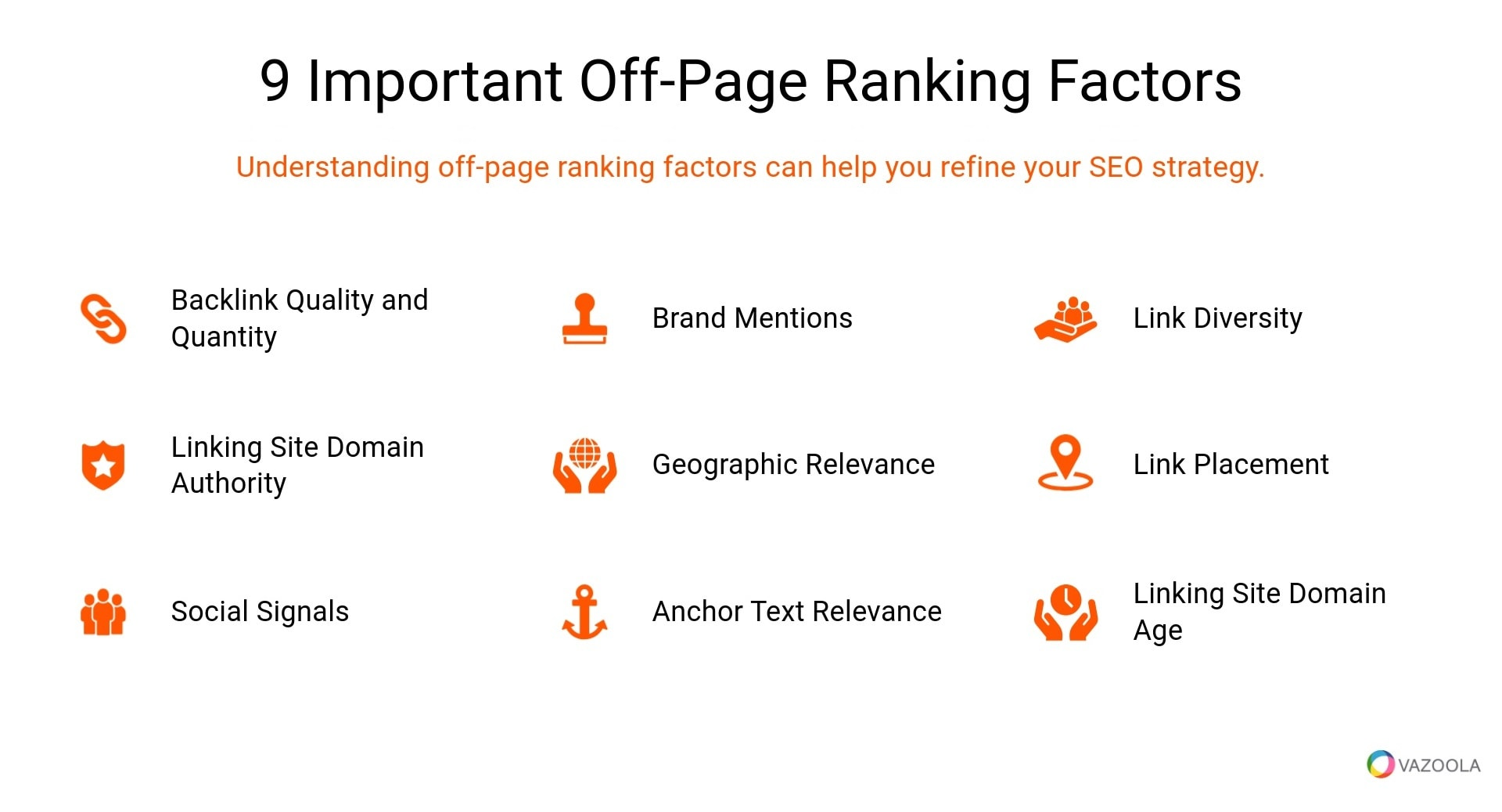
Quality and Quantity of Backlinks
The quality and quantity of backlinks from off-page to your site remain crucial for off-page SEO. High-quality off-page SEO backlinks from trusted, authoritative websites demonstrate your content's reliability to the search engines, while the greater number of quality links generally tends to show greater authority.
Domain Authority of Linking Sites
Search engines also consider the domain authority of the websites linking to you. Links from high domain authority websites have a greater impact on your rankings than links from lower authority websites, as those links become strong signals regarding your content's credibility.
Social Signals
While social media shares and likes are not direct off-page SEO ranking factors, they help create brand awareness and drive more traffic to your site. Strong social signals mean that your content is of high quality and encourages organic link building.
Brand Mentions
Other unlinked mentions of your brand – in blogs, news sites, and social media sites – will also help towards your off-page SEO. These give visibility and credibility to your brand, while the search engines recognize them as evidence that your brand is popular, authoritative, or relevant.
Geographic Relevance
For businesses with a local focus, geographical relevance is perhaps one of the most important features of backlinks. Links from locally oriented directories, websites, or content with a focus on specific regions increase the visibility of your website through local search results, which provides greater relevance to your site for those who matter most.
Anchor Text Relevance
Anchor text — the clickable text in a hyperlink — provides context to search engines about the content on your site. When links use relevant, descriptive anchor text, it signals to search engines what users might expect to find, improving the relevance and authority of your site in specific topic areas.
Link Diversity
Link diversity is the range of different sites that may have an off-page link back to your content. A variety of different sites with a single link to you, as opposed to numerous links from one site itself, tells Google that your content is relevant and worth linking to on many platforms and industries. It will have a positive effect on your SEO performance.
Link Placement
Yet another important fact that will determine the possible value of links is the on-page placement of the links. Links placed within the content area of a webpage will most of the time be more valuable than those hidden in a footer or sidebar. They're more contextual and relevant to the text surrounding them, making them more authoritative.
Domain Age of Linking Sites
Older domains are believed to be more authoritative in search rankings compared to new domains. If older, trusted sites link to your content, then your site is believed to be more trustworthy and reliable. These older domains are considered more stable and reliable sources themselves.
Off-Page Vs. On-Page SEO
What is on-page vs. off-page SEO?
On-page SEO focuses on optimizing elements within your site, such as keywords, headings, and meta descriptions. These efforts improve the relevance of individual pages to specific search queries, so your content is more appealing to both search engines and users.
On the other hand, off-page SEO works to boost your site's overall authority and reputation, employing off-page SEO methods that operate outside of your website.
Both strategies work in tandem for a comprehensive SEO approach. When executed together, they strengthen your site’s appeal to search engines, leading to improved rankings.
10 Types of Off-Page SEO
Off-page SEO encompasses a variety of techniques designed to strengthen your website's authority and visibility beyond its own pages. These strategies focus on building credibility, increasing brand mentions, and driving traffic through external channels.
What are the best off-page SEO steps to take for success?
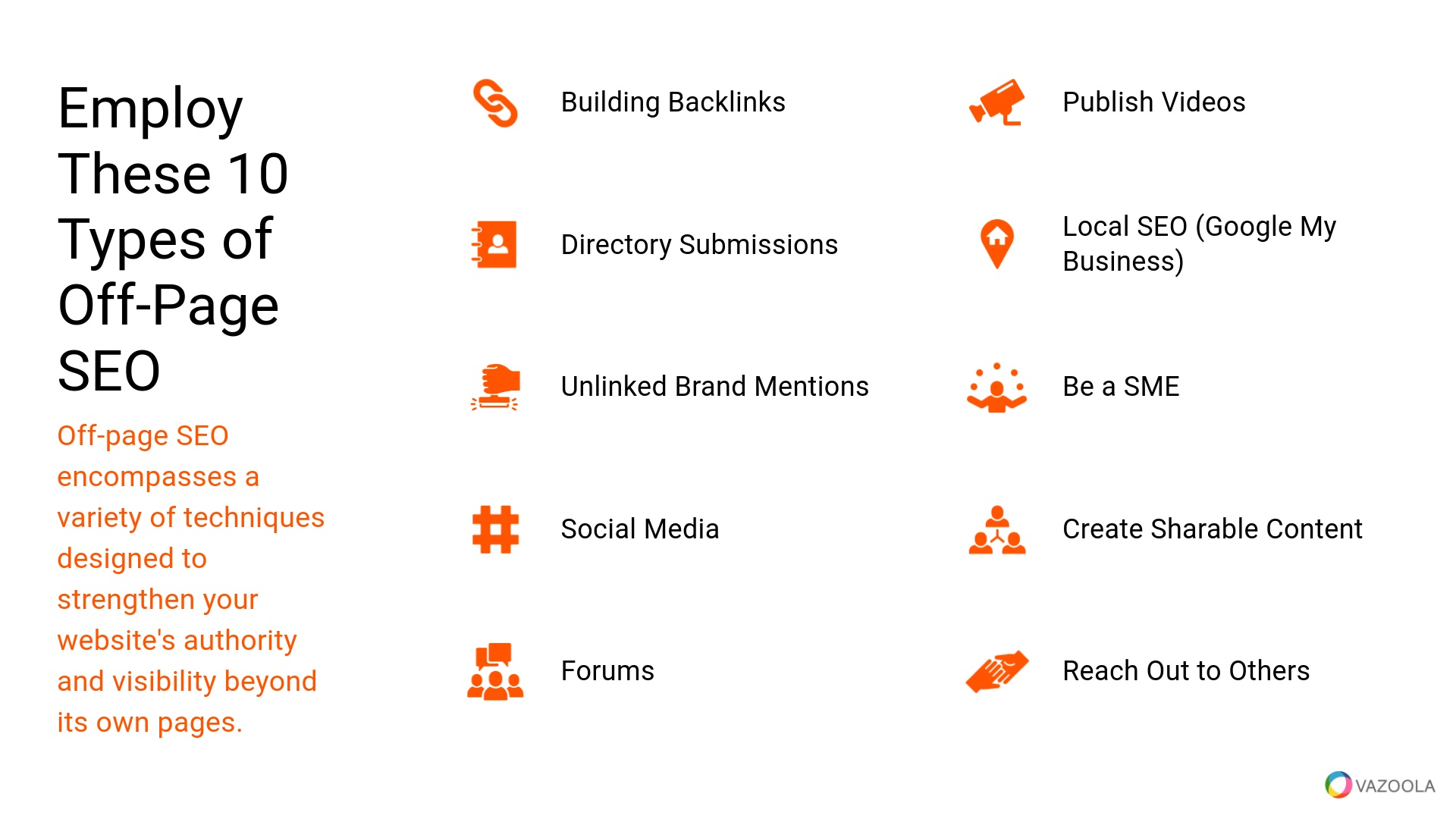
From link-building and social media engagement to outreach campaigns and expert mentions, each tactic plays a unique role in boosting your search engine rankings.
-
Backlinks, AKA Link Building
Backlinks are one of the strongest ranking signals for search engines. High-quality backlinks from authoritative sites tell search engines that your content is reliable and worth referencing.
A 2020 study found a direct correlation between high search engine rankings and strong backlink profiles. Google is also on the record, confirming it considers the number and quality of backlinks when ranking pages.
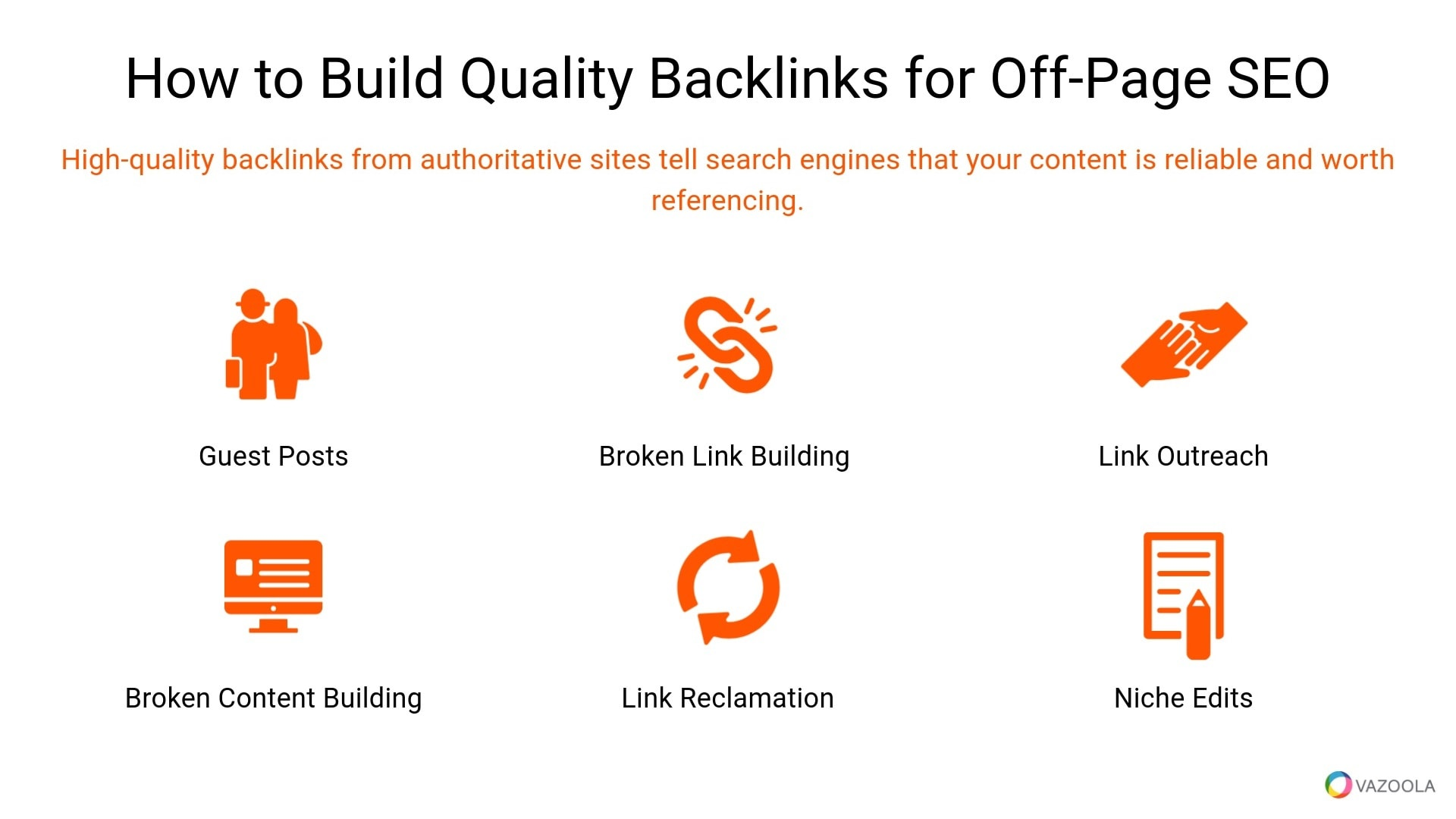
To acquire quality backlinks, consider using strategies like:
-
Guest Posts: By contributing valuable guest post content to reputable sites in your niche, you can link back to your own website, increasing authority and visibility.
-
Broken Link Building: Identify broken links on relevant sites and suggest your content as a replacement. Tools like Ahrefs’ Content Explorer offer an “Only Broken” search option that simplifies this process.
-
Link Outreach: Send polite, concise emails to websites or influencers who might be interested in linking to your content. Use Google’s advanced search to find specific sites, and focus on those where your content adds real value.
-
Broken Content Building: Less time-consuming than a broken link building process, this involves searching for broken internal links on pages you favor. Then, present your findings as a service to the site owner before proposing they link to your site. You can quickly locate broken links with a digital search tool such as Ahref’s Content Explorer.
-
Link Reclamation: Link reclamation involves recovering unlinked mentions of your brand to build your backlink profile. By reaching out to sites that mention your business without a link, you can request that they add a backlink, driving traffic and strengthening SEO. For more on this tactic, check out Vazoola’s infographic link-building services.
-
Niche Edits: Niche edits add backlinks to existing content on authoritative sites where your link naturally fits, boosting relevance without new content creation. This off-page strategy allows you to tap into established, high-quality pages, enhancing your site’s authority and visibility. Explore Vazoola’s niche edit services to efficiently leverage this method.
Don’t forget to employ some of the best link-building tools. These tactics, when executed correctly, can enhance your backlink profile and improve your site’s ranking.
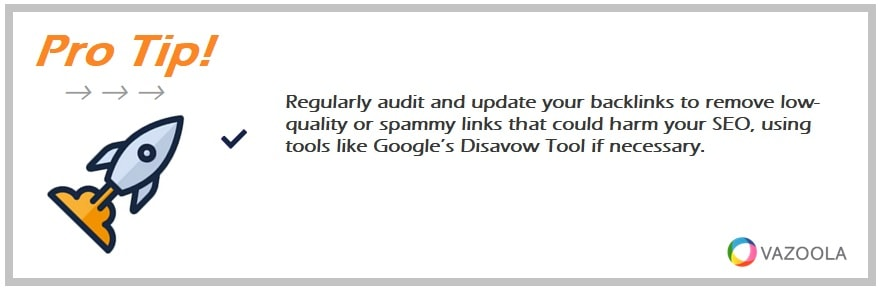
Regularly audit and update your backlinks to remove low-quality or spammy links that could harm your SEO, using tools like Google’s Disavow Tool if necessary.
-
Off-Page Directory Submissions
Off-page directory submissions are achieved by listing your website in reputable online directories so that it becomes visible and gains valuable backlinks. These directories are categorized websites based on industries, locations, or the types of services offered. They enable viewers to easily get to the site they need. It’s also easier for search engines to verify how credible your business is.
You can drive referral traffic and build off-page SEO when you submit your site to trusted directories like Yelp, Yellow Pages, or industry-specific directories.
Directory submission will also help reinforce your site's legitimacy, especially when you select only those directories that are relevant and authoritative in your niche.
Listing your business details consistently in directories enhances your brand's online presence. It also improves the chances of ranking higher in search results.
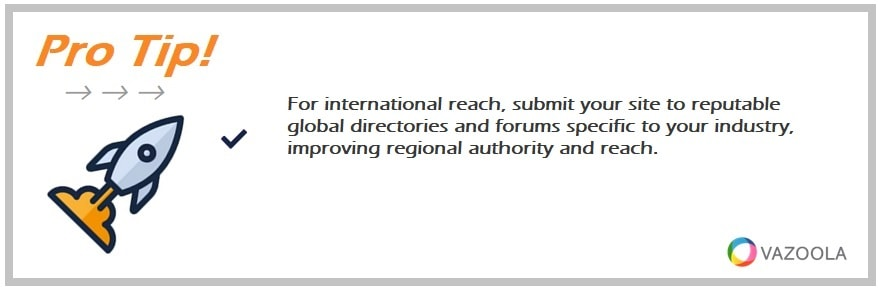
For international reach, submit your site to reputable global directories and forums specific to your industry, improving regional authority and reach.
-
Unlinked Brand Mentions
An unlinked brand mention occurs when a business is mentioned on the web without a link back to your site. Even so, unlinked mentions provide value for off-page SEO in the form of brand awareness. Brand mentions also send signals of credibility to search engines.
When numerous mentions of a certain brand begin to appear from a variety of reputable and relevant sites, the search engine considers the mention as a signal of its authority and relevance to the industry.
Unlinked mention monitoring gives you the opportunity to reach out and request backlinks for these mentions, further strengthening your best off-page SEO strategies. Turning unlinked brand mentions into links is not just increasing traffic potential but also improving the site's authority.
For more insights on optimizing unlinked mentions, check out our guide.
-
Social Media
Social media off-page SEO marketing amplifies various off-page SEO strategies by building your brand awareness, engaging users to participate, and driving referral traffic. With millions of users engaging each day on platforms such as Facebook, Instagram, LinkedIn, and X, a good social media presence exposes your brand to new audiences and helps users showcase their interest in your content.
While social media activity itself does not directly affect search rankings, it indirectly plays a role in boosting SEO by encouraging content sharing and, thus, improving backlinks from other sites.
A well-implemented social media strategy will drive traffic to your site, stimulate conversations about your brand, and establish brand loyalty.
More visibility of the brand – through each like, share, and comment of your content – expands the opportunities for other sites to link back to yours. Consistent engagement and shareable content go hand in hand to support off-page SEO initiatives by developing brand authority and introducing one to a wider audience.
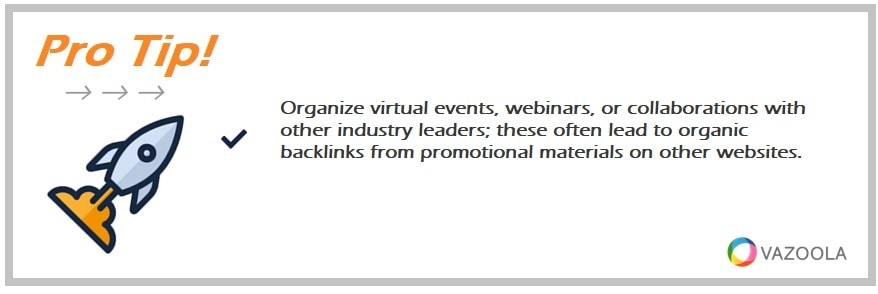
Organize virtual events, webinars, or collaborations with other industry leaders; these often lead to organic backlinks from promotional materials on other websites.
-
Forums
Beginning with a 2024 update, Google now favors content from social media forums. Engaging in such forums, communities, and Q&A sites like Reddit and Quora can be beneficial for off-page SEO.
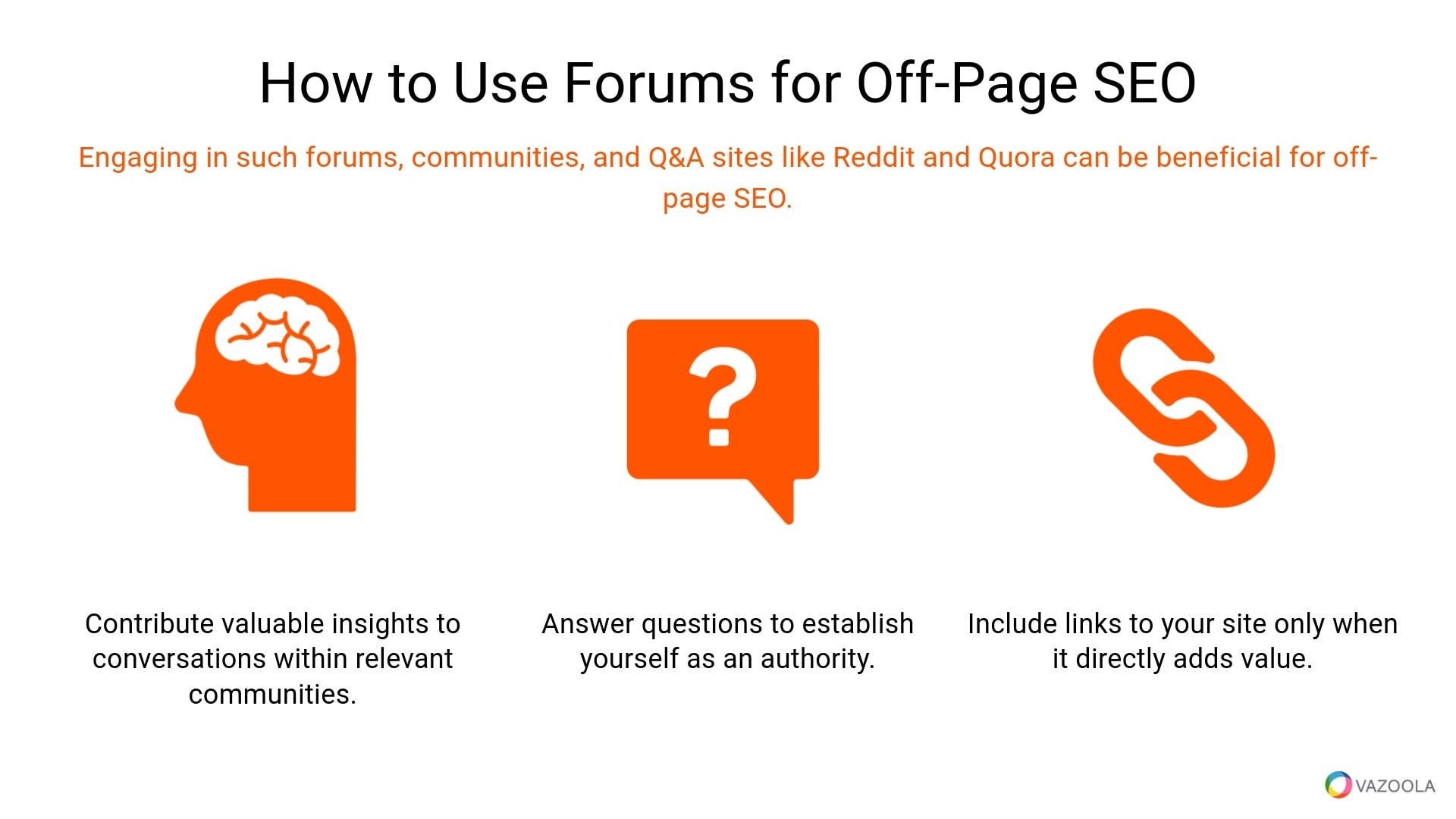
Google’s algorithms favor user-generated content in many cases, viewing these platforms as credible sources for diverse perspectives.
To use forums effectively:
-
Contribute valuable insights to conversations within relevant communities.
-
Answer questions to establish yourself as an authority.
-
Include links to your site only when it directly adds value.
Building a reputation in online communities can foster trust and increase brand visibility while driving potential customers to your site.
-
Publish Videos
While video marketing primarily boosts brand awareness, publishing videos on platforms like YouTube can also support off-page SEO.
Well-crafted videos can bring off-site optimization SEO benefits, increasing engagement and promoting your brand’s identity. Consider publishing videos such as:
-
How-to Tutorials: Guide users through a process related to your product or service. They’ll appreciate the help, and will be inclined to check out what else you have to offer them.
-
Product Demos: Showcase your offerings in a way that resonates with viewers. For example, many successful brands publish videos of their packaging process to draw interest to their products.
Videos help establish your brand as a trusted resource, encouraging users to seek out your website for more information. Not only will you generate shares, you’ll stir up interest in your products or services while you offer your audience value.
-
Local SEO — Google My Business
Optimizing for local SEO and local link building can boost your online presence within a specific area. Setting up a Google My Business profile is a key aspect of local off-page SEO. The local business SEO profile helps potential customers find your business and increases your visibility in local search results.
When creating your Google My Business profile:
-
Include accurate contact details, operating hours, and address.
-
Respond to customer reviews to show engagement.
-
Keep your information up-to-date for users and search engines alike.
A well-maintained Google My Business profile can increase your chances of ranking in the local pack and drive more local traffic to your site.
-
Promote Yourself as a Subject Matter Expert (SME)
Establishing yourself as a subject matter expert can greatly enhance your online reputation by boosting your credibility and expanding your reach.
Some useful methods to achieve this are through interviews, quotes, or features in leading publications. This will reflect your authority both for Google and other search engines, as well as your target audience.
For starters, look to create a quality press release that showcases your experience, your services, and your brand value. Then you can distribute the news to journalists and media outlets, making yourself available for interviews by or otherwise featured in influential publications.
The more authoritative the news outlet is, the stronger the SEO benefit from these mentions. Often backlinks from respected sources carry high values in search engine rankings.
Plus, adding relevant keywords and Latent Semantic Indexing keywords to your press release – like terms and phrases related that increase context – will help make sure search engines understand the topic and value of your expertise. Need help with LSI? Check out Backlinko's guide.
Other platforms like Connectively – known previously as HARO, or Help a Reporter Out – offer another avenue to get recognition. They connect webmasters and business owners with journalists seeking expert sources. By offering your insights through HARO, you can secure valuable media mentions. These can contribute to both your overall reputation and off-page SEO efforts.
Vazoola’s link-building services can include HARO link building, so proving yourself a SME is within your grasp.
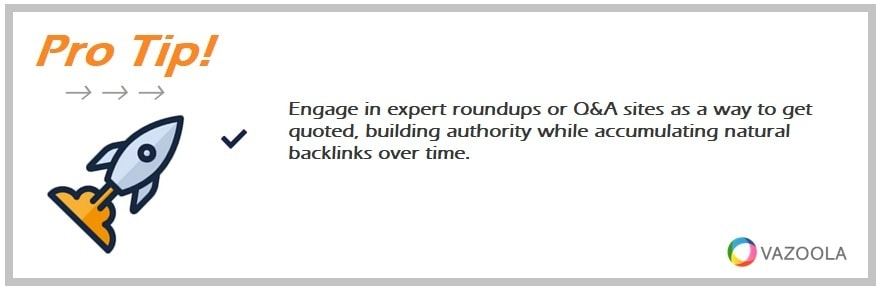
Engage in expert roundups or Q&A sites as a way to get quoted, building authority while accumulating natural backlinks over time.
-
Create Shareable Content
Creating shareable content is an effective off-page SEO strategy that encourages others to link back to your site.
When you produce high-value resources—like a comprehensive guide, white paper, or infographic—other websites and individuals are more likely to reference and share it.
This kind of content attracts organic backlinks and improves your site's authority. A summary of content types that attract links can be found in Vazoola’s guide to link-worthy content, which includes off-page SEO examples of valuable content formats.
Visual content and linkable assets, such as original images, infographics, or diagrams, can enhance shareability even further.
By creating eye-catching graphics and adding HTML sharing code at the bottom of your page, you make it easy for others to embed and link back to your site. Include a backlink in the HTML coding so that any shares of the graphic automatically direct users to your site. That way, whether someone embeds the image or references the data, it drives traffic and builds SEO authority for your website.
For additional insights on building links through infographics, check out Vazoola’s infographics service.
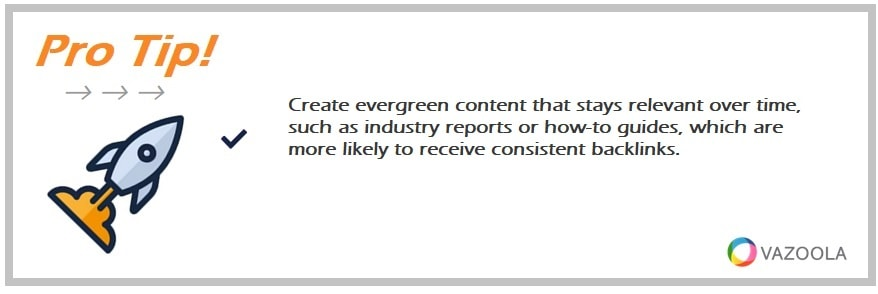
Create evergreen content that stays relevant over time, such as industry reports or how-to guides, which are more likely to receive consistent backlinks.
-
Reach Out to Others
Outreach campaigns amplify your off-page SEO by connecting with influencers, bloggers, organizations, and publications that can boost your brand’s visibility.
These campaigns often involve personalized email outreach to relevant figures, encouraging them to share or publish content you’ve crafted specifically for their audience. By building relationships through outreach, you can secure high-quality backlinks and strengthen your brand’s online authority.
When reaching out, make sure your message emphasizes the value of your content to the recipient’s audience. Focus on how your expertise or insights can benefit their followers rather than just promoting your brand.
Successful outreach can drive more targeted traffic to your site and increase your industry credibility. For guidance on crafting effective outreach emails, refer to Vazoola’s sample link outreach email and guest blog outreach tips.
While time-intensive, these campaigns foster long-term connections and open doors to collaboration, helping your brand gain recognition across a larger, more engaged audience.
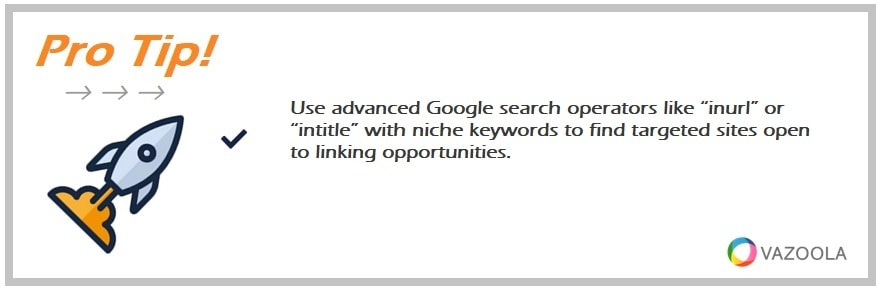
Use advanced Google search operators like “inurl” or “intitle” with niche keywords to find targeted sites open to linking opportunities.
Benefits of Off Page SEO
Off-page SEO offers significant advantages for businesses looking to build a strong online presence. By leveraging external strategies like link-building, social media engagement, and outreach, you can increase your brand’s visibility and authority.
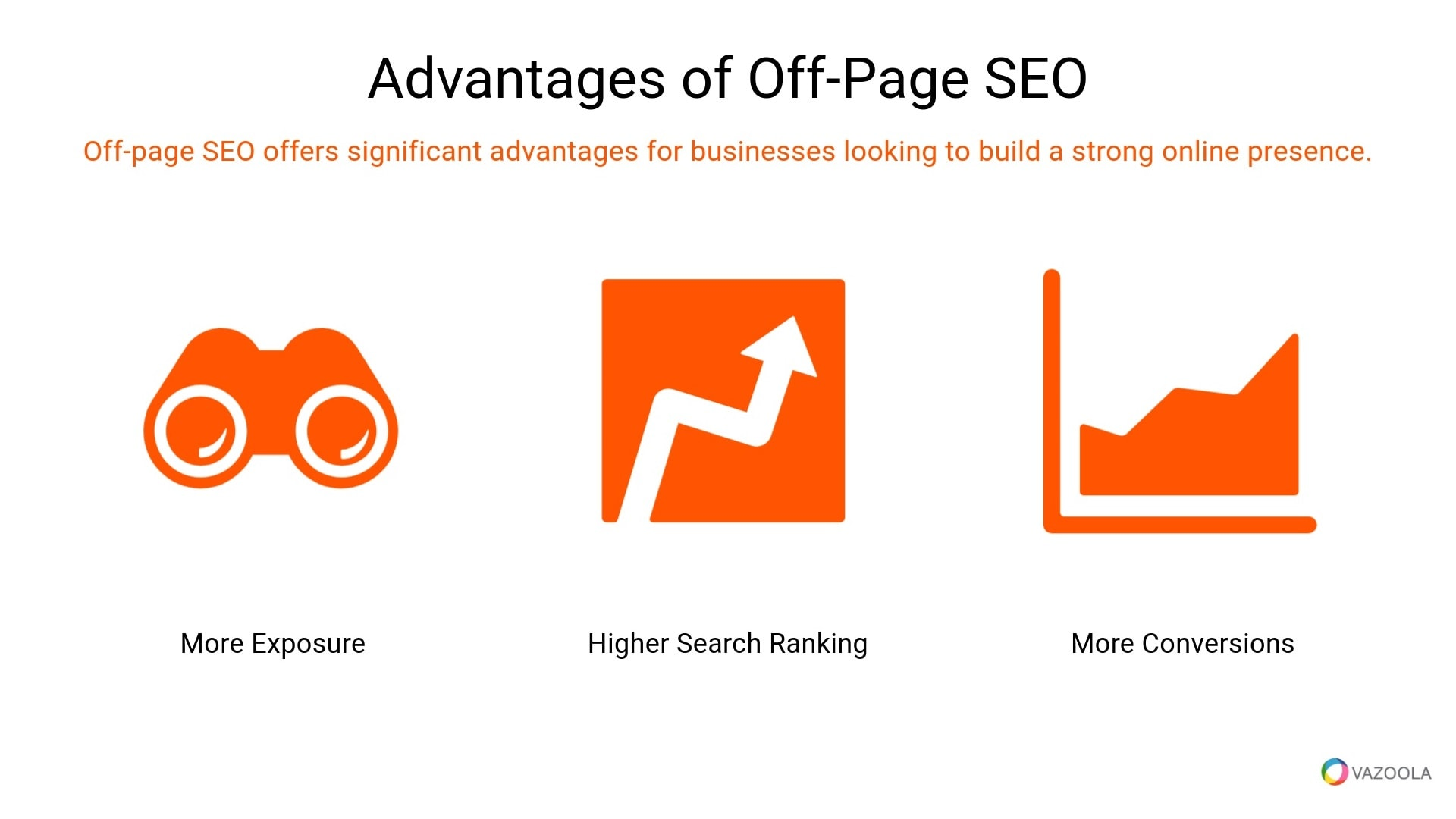
Here are some core benefits of implementing a solid off-page SEO strategy.
More Exposure
Off-page SEO helps you connect with segments of your target audience you wouldn't otherwise reach. Best off-page SEO techniques such as link building, influencer outreach, and even directory submissions, expand the circle of visibility for your brand. It does so by making it more present in places where your target customers will frequent. That means extending your reach with strategic off-page efforts and, by virtue of that, attracting new audiences while growing your visibility on several channels.
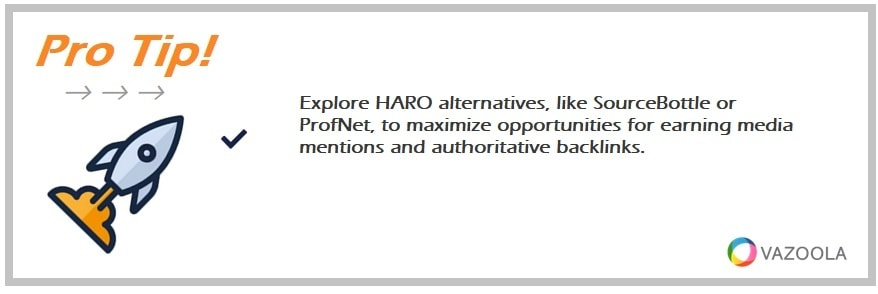
Explore HARO alternatives, like SourceBottle or ProfNet, to maximize opportunities for earning media mentions and authoritative backlinks.
Increase Your Ranking
Effective off-page SEO can boost your site’s position in search engine results, making it easier for users to find you. Backlinks from reputable sites, positive brand mentions, and engagement through social media signal your site’s authority and relevance to search engines. As your ranking improves, you can expect a steady increase in website traffic, enhancing your brand’s overall impact and reach.
Increase Conversions
With more traffic coming to your site, your chances of converting visitors into customers also grow. A well-executed off-page SEO strategy not only attracts more visitors but also builds credibility and trust, making visitors more likely to engage with your content or make a purchase. By increasing conversions, off-page SEO contributes directly to revenue growth and long-term business success.
Off-Page SEO Tips
Looking for off-page tricks? If you’re working with limited resources, focusing on a few high-impact off-page SEO strategies can still drive valuable results.
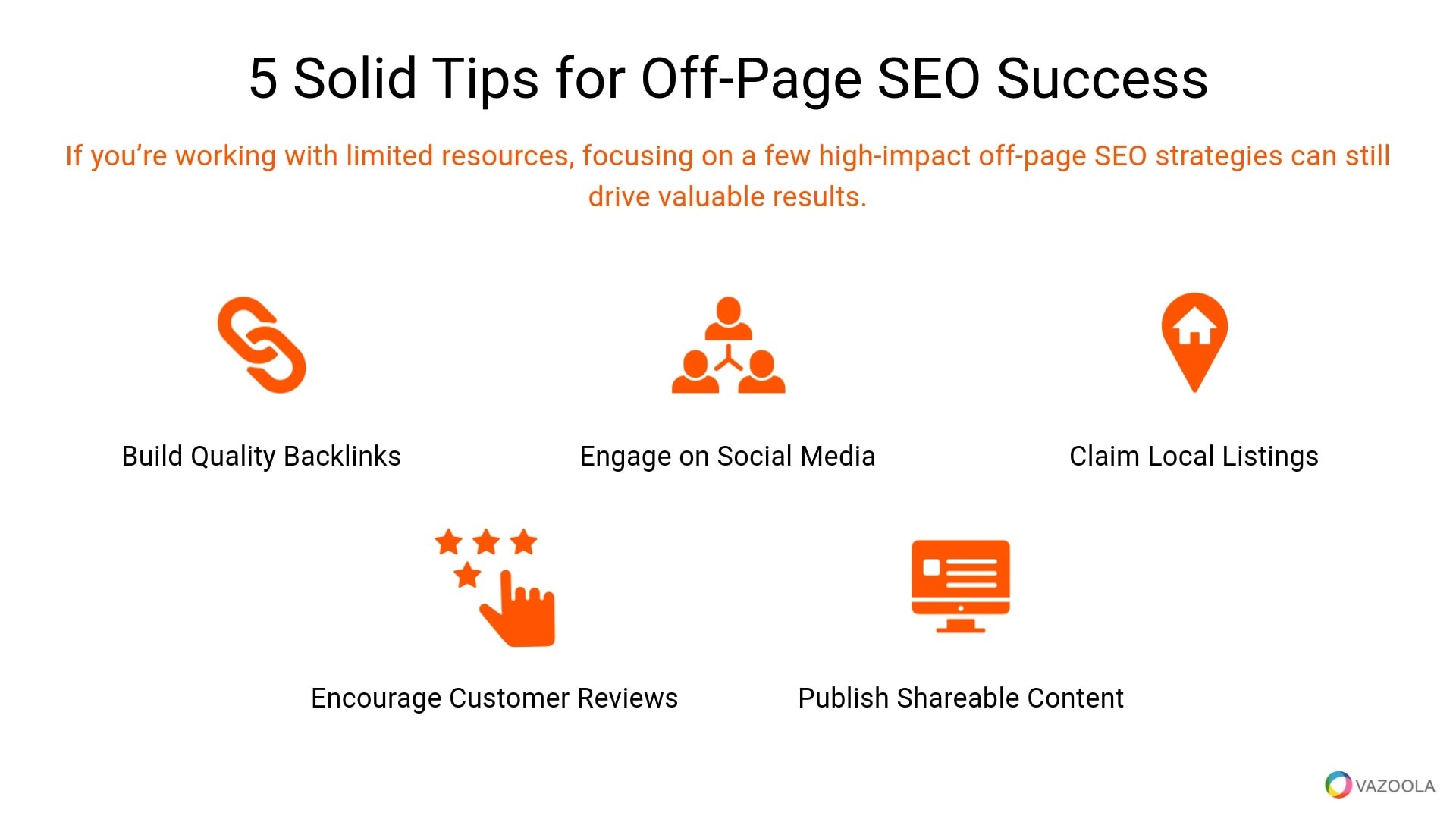
Here are essential tasks to prioritize:
-
Build Quality Backlinks: Reach out to reputable sites for backlinks, as even a few high-quality links can significantly enhance your authority.
-
Engage on Social Media: Share relevant content and interact with followers to build brand awareness and establish connections.
-
Claim Local Listings: Register your business on platforms like Google My Business to boost local search visibility and attract nearby customers.
-
Encourage Customer Reviews: Positive online reviews help build credibility and improve your brand’s reputation.
-
Create Shareable Content: Produce high-value content like infographics or guides that others may link to, increasing organic backlinks over time.
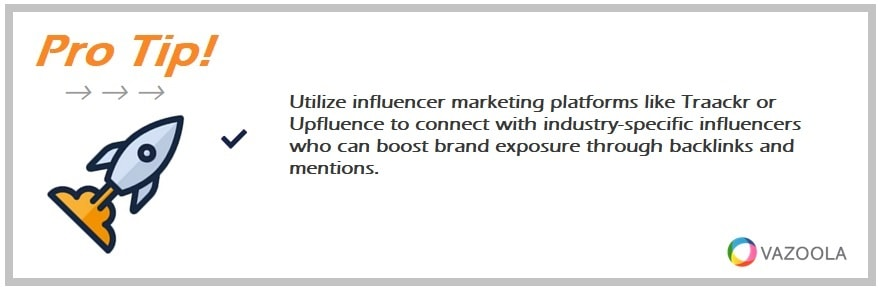
Utilize influencer marketing platforms like Traackr or Upfluence to connect with industry-specific influencers who can boost brand exposure through backlinks and mentions.
Off-Page SEO Tools
Managing off-page SEO can be simplified with the right off-page SEO tool options, which help track backlinks, monitor brand mentions, and analyze competitors.
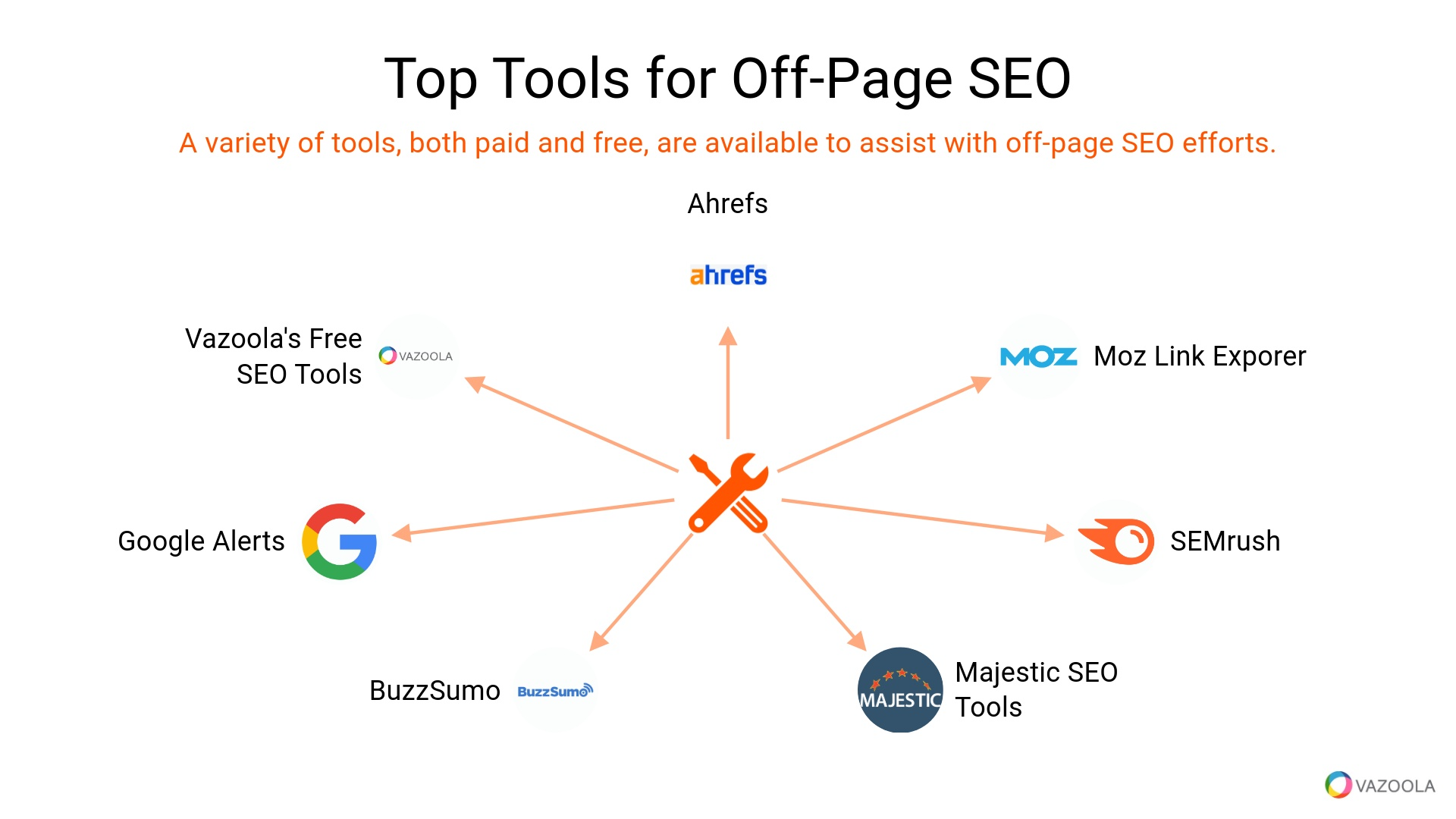
Here are some essential tools to support your off-page SEO efforts:
-
Ahrefs: Provides robust backlink analysis, competitor insights, and link-building opportunities to strengthen your site’s authority.
-
Moz Link Explorer: Offers a clear overview of your backlink profile, domain authority, and useful data on competitors’ link strategies.
-
SEMrush: Includes tools to analyze backlinks, track brand mentions, and manage outreach campaigns, all in one comprehensive platform.
-
BuzzSumo: Helps identify trending content and top influencers in your industry, supporting outreach and content creation efforts for greater engagement.
-
Google Alerts: A free tool that notifies you of new mentions of your brand or keywords online, ideal for tracking brand visibility and unlinked mentions.
-
Majestic SEO: Specializes in link intelligence, showing the strength and relevance of your backlink profile through metrics like Trust Flow and Citation Flow.
-
Vazoola’s Free SEO Tools: Vazoola offers a variety of free SEO tools that can help with off-page optimization in SEO, including a Free Backlink Checker and other off-page SEO checker options, a keyword ranking tool – even domain authority assessments and more.
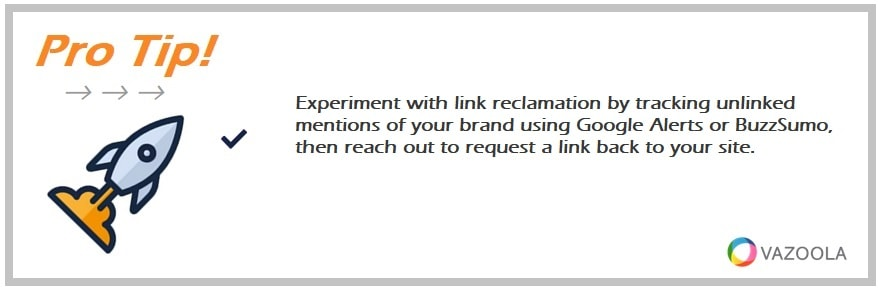
Experiment with link reclamation by tracking unlinked mentions of your brand using Google Alerts or BuzzSumo, then reach out to request a link back to your site.
Do You Need an Off Page SEO Strategy?
Was our off-page SEO checklist helpful? Do you now know how to do off-page SEO thanks to our off-page SEO tutorial?
There are a variety of reasons you should invest in off-page SEO. For most businesses, a highly effective off-page SEO strategy drives more significant ROI through larger traffic, credibility, and conversion rates.
In summary, here's why you need to consider using off-page SEO tactics:
-
More Exposure: Off-page SEO efforts can extend to new audiences, raise traffic, and increase brand visibility.
-
Higher Rankings: Quality backlinks and positive mentions signal to search engines that your brand is an authority, and this will improve your position within search results.
-
Increased Conversions: With off-page SEO, more people generally translate into higher conversion rates since visitors will come to trust your brand. The bottom line is increased revenue.
If managing off-page SEO has become too overwhelming, working with a professional SEO service like Vazoola can be beneficial. We come armed with the tools, knowledge, and experience in driving meaningful results.

